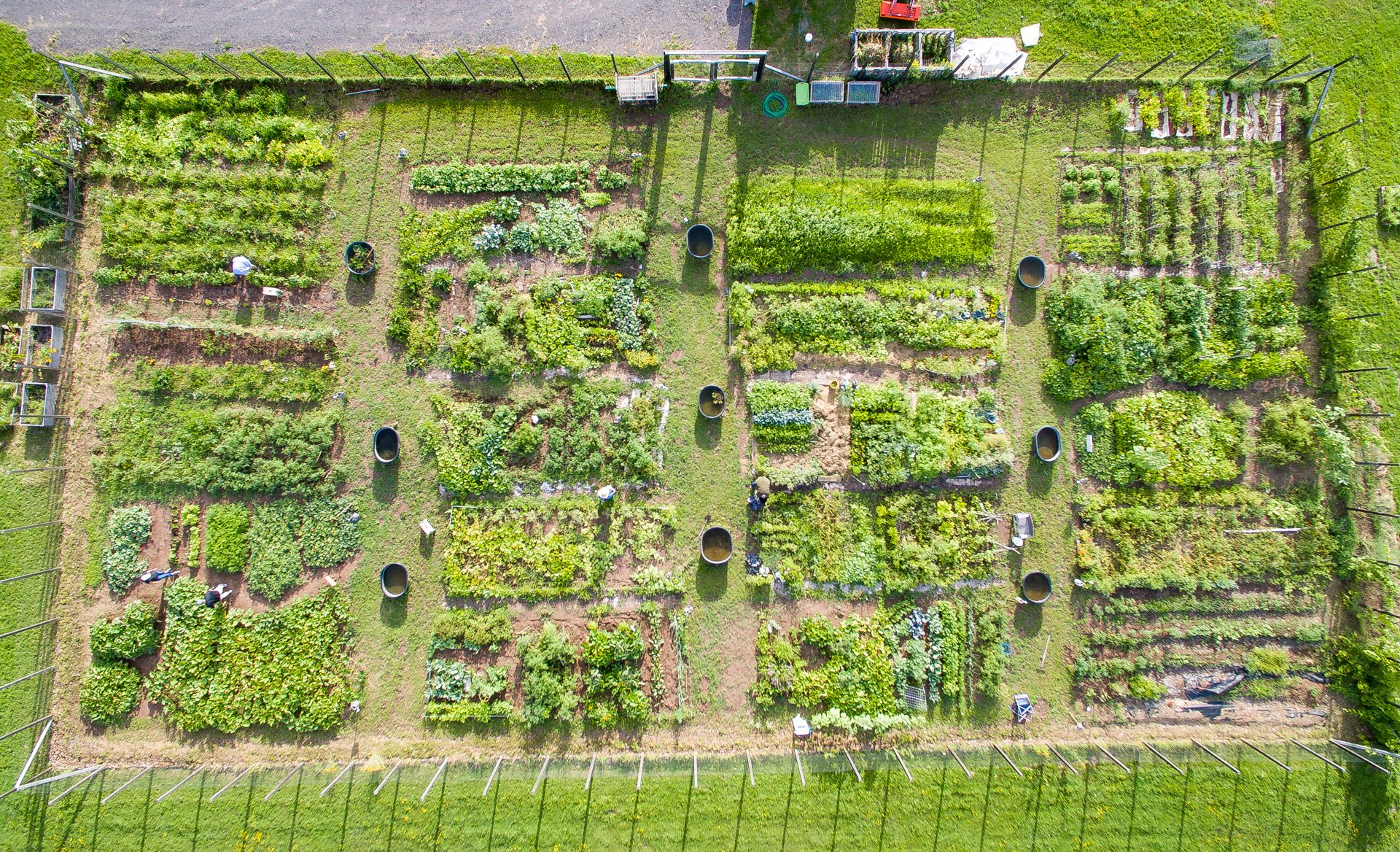
Food Systems
Planning for healthy, sustainable local and regional food systems can bring economic, environmental, physical, and social benefits to local communities.
Resilient local food systems help maintain and grow economic opportunities in the agricultural and food sectors through jobs and production on farms and farm support businesses, food processing, food transport and distribution, marketing, retail, and other food-related areas.
Gratitude for the Garden's Goodness - Photograph by Lisa Reitz
Community food systems that focus on local and regional food production and sales as well as ecologically friendly, sustainable farming practices reduce the amount of energy and resources needed for food production and distribution as well as the potential negative environmental impacts of agricultural production on land, water, and air.
Planning that includes better access to and availability of healthy, affordable, fresh food can significantly impact health at both the individual and community levels. Educating and engaging local residents in this process can improve health outcomes, increase social capital, strengthen sense of place and community character, and offer entrepreneurial opportunities.
If you have any questions or comments, please be welcome to reach out to Rachael Pressley, Senior Regional Planner, at rpressley@wuppdr.org
Check out photographs from the Western U.P. Food Photo Contest
Check out the Western U.P. Food Systems Collaborative's most recent Annual Report
Our recent food systems work
The Western U.P. Planning and Development Region works to strengthen our communities by identifying and supporting our food systems’ unique gifts, local needs, and regional priorities. Current projects include:
From the Ground Farmers Market Collective project support
Growing from the Heart - a grassroots mutual aid project working to increase access to fresh local foods with our neighbors and local food pantries
Envisioning a Local Food Future Listening Sessions with the Gogebic Conservation District
Shared Use Kitchen for the Keweenaw Bay Indian Community - Natural Resources Department
Provide technical assistance to regional seed libraries in the central and western U.P. including the Portage Lake Seed Library
Participation in State, regional, and local food system networks (Michigan Local Food Council Network, Upper Peninsula Food Exchange, and the Western U.P. Food Systems Collaborative)

